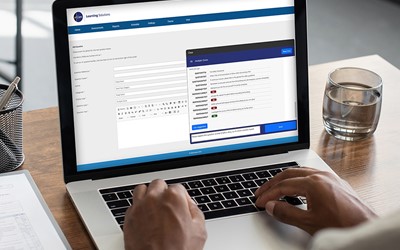How good is my digital learning solution?
The effectiveness of digital learning solutions is a critical consideration for organisations aiming to deliver high-quality training and development.
But how do you determine whether your current digital learning solution is hitting the mark? By evaluating several key areas, you can assess its effectiveness and identify opportunities for improvement.
Posted 10 June 2024
Engagement levels: A key indicator of success
Engagement is one of the most telling indicators of a successful digital learning solution. Are learners actively participating in courses, completing modules, and interacting with the content? High engagement levels often signal that the solution is meeting learner needs and maintaining their interest.
To gauge engagement, consider both qualitative and quantitative feedback. Monitor participation rates, course completion times, and assessment performance. Supplement this with learner feedback to understand their experiences—what they enjoy, what they struggle with, and what they’d like to see improved. Low engagement could indicate several issues, such as outdated content, a lack of interactivity, or accessibility barriers. By addressing these challenges, you can transform your digital learning solution into a more engaging and effective tool.
Using reporting to measure effectiveness
Robust reporting capabilities are essential for any digital learning solution. They provide you with the data needed to assess the effectiveness of your programmes and pinpoint areas for improvement. Key metrics include course completion rates, time spent on learning, and quiz or test scores.
Advanced reporting features can go further, offering insights into learner behaviour, such as which sections of a course are most frequently revisited or where learners drop off. This data helps you understand what’s working and where learners may be struggling. Organisations can also use reporting to measure return on investment (ROI). For example, if the goal of a training programme is to reduce workplace incidents or improve sales figures, reporting tools can connect training outcomes to these measurable business goals.
Accessibility and usability: The foundation of a good solution
A good digital learning solution is accessible to all learners, regardless of their location, device, or ability. Accessibility goes beyond simply being mobile-friendly—it also includes considerations such as support for multiple languages, screen reader compatibility, and offline functionality for those with limited internet access.
Usability is another key factor. A platform that is difficult to navigate can frustrate learners and reduce engagement. Ensure that your digital learning solution offers a clean, intuitive interface with straightforward navigation. Features such as progress tracking and search functionality can further enhance the user experience.
Content relevance and flexibility
The content within your digital learning solution must align with your organisation's goals and learner needs. Courses that are outdated or irrelevant can disengage learners and fail to deliver the desired outcomes. Regularly review and update content to reflect current trends, industry standards, and organisational objectives.
Flexibility is also critical. Your digital learning solution should support the creation of personalised learning paths, allowing learners to focus on areas most relevant to their roles or career goals. Microlearning modules, which deliver content in bite-sized pieces, are another effective way to keep learners engaged and ensure knowledge retention.
Scalability and security for long-term success
As your organisation grows, your digital learning solution must grow with it. A scalable solution can handle increasing numbers of users and larger content libraries without compromising on performance. This is particularly important for organisations operating across multiple locations or with a global workforce.
Security is equally important. Digital learning solutions often host sensitive data, such as personal learner information or compliance records. Ensure your platform includes features like data encryption, secure login protocols, and regular updates to protect against security breaches.
How eCom Learning Solutions can help
At eCom Learning Solutions, we specialise in creating tailored digital learning solutions that excel in engagement, reporting, and usability. Contact us today to discover how we can enhance your learning strategy.
Recent Posts
eCom Learning Solutions: Staying ahead in a constantly evolving landscapeIs your work changing, or just your tools? A question for the modern workforce
What is competency? And why it matters in the workplace
Bridging the integrity gap: A proactive approach with eNetEnterprise
Proving Learning Works: Trends Driving Workplace Training in 2025



